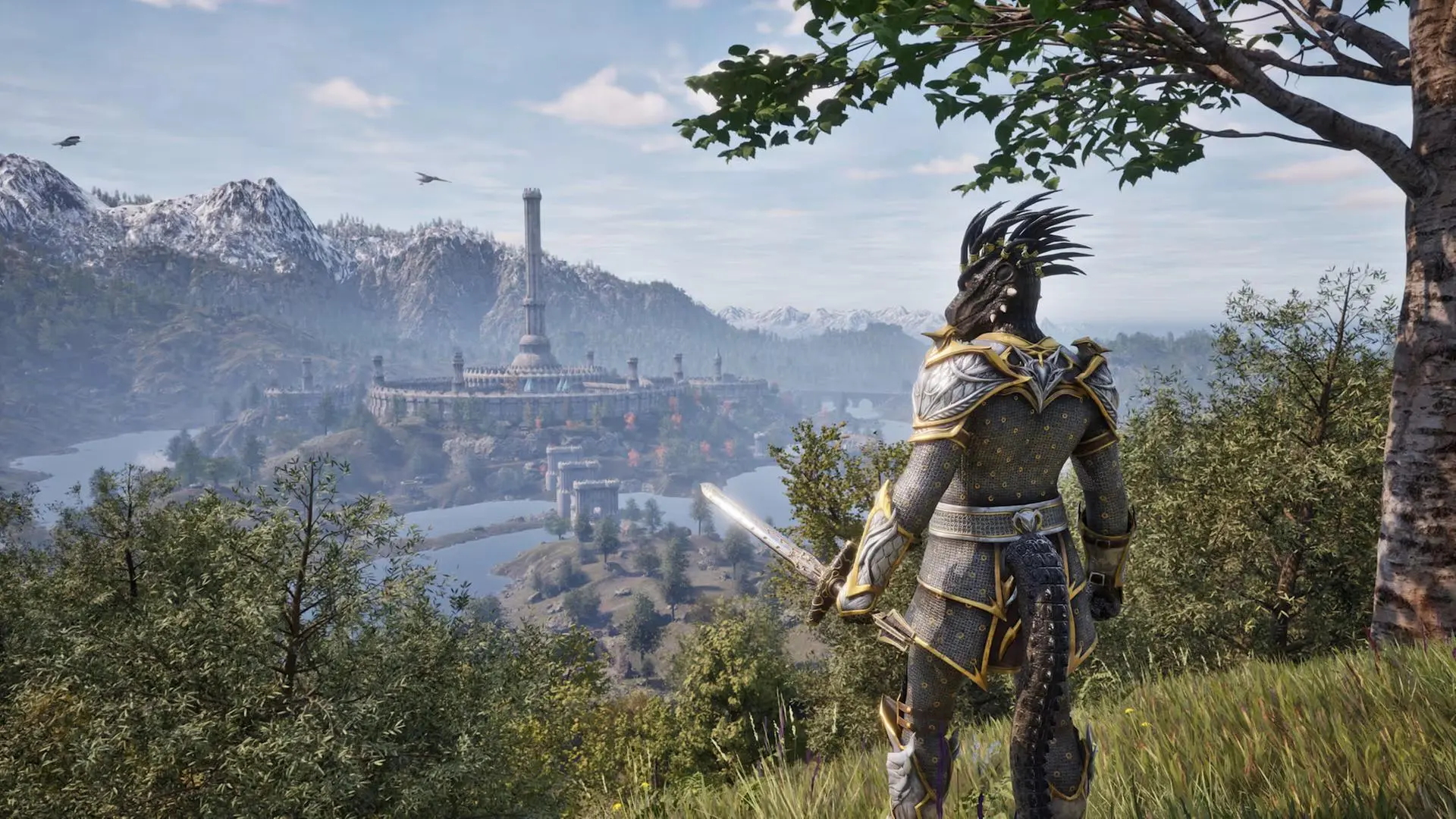In celebration of The Elder Scrolls’ 30-year milestone, classic reviews of the main series titles have been brought back from the archives. The Elder Scrolls IV: Oblivion, originally evaluated in early 2006, is being revisited as its remastered version approaches release. Oblivion was a breakthrough for the franchise, becoming the first to exceed the prestigious 90% rating threshold due to its vast world and engaging systems. Though positioned between Morrowind’s eccentricity and Skyrim’s refinement, Oblivion remains distinguished as an ambitious and captivating RPG.
Freedom to Forge Your Path
Oblivion’s greatest achievement is its unbounded freedom. While players receive a primary objective involving a dire prophecy and saving the realm, the true essence of the experience lies in the choices made throughout. One might develop into a cunning thief, formidable warrior, or shadowy assassin before even approaching the main narrative, with the game adapting accordingly. Each player’s adventure becomes uniquely personal—shaped not by predetermined storylines, but through natural exploration and curiosity. What unfolds is determined by the player’s actions rather than a fixed narrative.
Real-Time Combat Brings Fantasy to Life
Unlike traditional RPGs, Oblivion employs real-time combat from a first-person view. Success relies on player ability—evading, defending, and striking depend on reflexes and timing rather than chance-based calculations. Arrows hit only when accurately aimed; spells connect because they’re cast precisely. This creates a physical engagement that deepens immersion and renders each encounter more meaningful.
Discovering Stories Organically
Oblivion excels in quest presentation. Players often discover storylines naturally—catching a tavern conversation might unravel a complex mystery. In one instance, whispers about a vampire in Bruma lead to an investigation revealing a vampire hunter’s deception. The tale commences with a rumour, progresses through stealth and theft, and culminates in a confrontation within a hidden cavern. The game provides clues rather than explicit instructions, trusting players to piece together the puzzle.
Raynil, the supposed vampire hunter, reveals his betrayal in a tense moment, materialising from nowhere and stating he was aware of inquiries about him. A desperate struggle ensues where quick thinking—utilising poisons, magic, and strategic positioning—changes the outcome. A final, poisoned arrow to the head sends him tumbling over a cliff, with his stolen sword following shortly after.
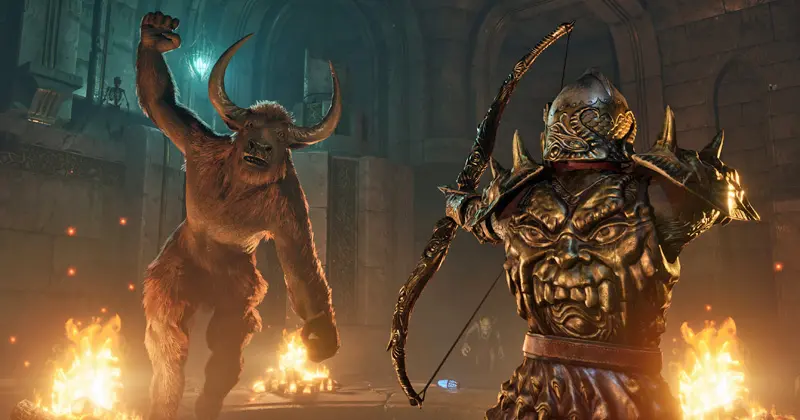
Quests That Make Sense
Oblivion’s quests rarely rely on strangers requesting assistance. Instead, players become involved because events logically draw them in. Guilds offer paid assignments, while overheard rumours and discovered documents unveil optional storylines. The vampire hunter scenario, for example, isn’t indicated by a quest marker. It unfolds because the clues are compelling and inspire action. Every mission carries narrative significance, often featuring complex characters and diverging outcomes.
Creative Combat Solutions
Battles can be unforgiving, particularly for hybrid characters. However, Oblivion provides numerous tactical options: perfectly-timed blocks, status-affecting spells, stealthy retreats, and custom-crafted potions can all shift the advantage. Creativity often determines survival. When an opponent falls, ragdoll physics emphasise the impact—whether they’re thrown by a shock spell or pinned mid-leap by an arrow, the result is both brutal and gratifying.
The Joy of Exploration
Travel stands out as another exceptional feature. While fast travel exists, riding through the countryside on horseback at any hour—dawn, dusk, or midnight—is a fundamental pleasure. From the moment players acquire their first horse early in the game, the landscape beckons exploration. The rhythm of hooves, panoramic views, and wilderness solitude combine to create peaceful interludes between chaotic encounters.
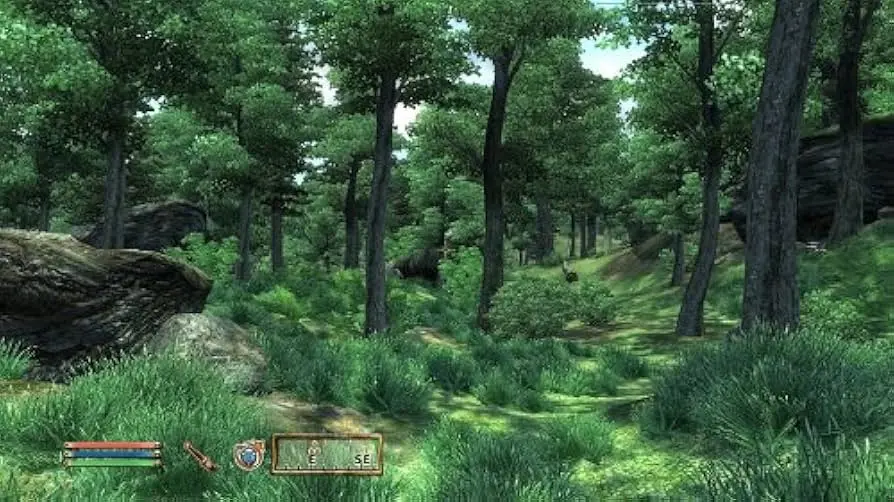
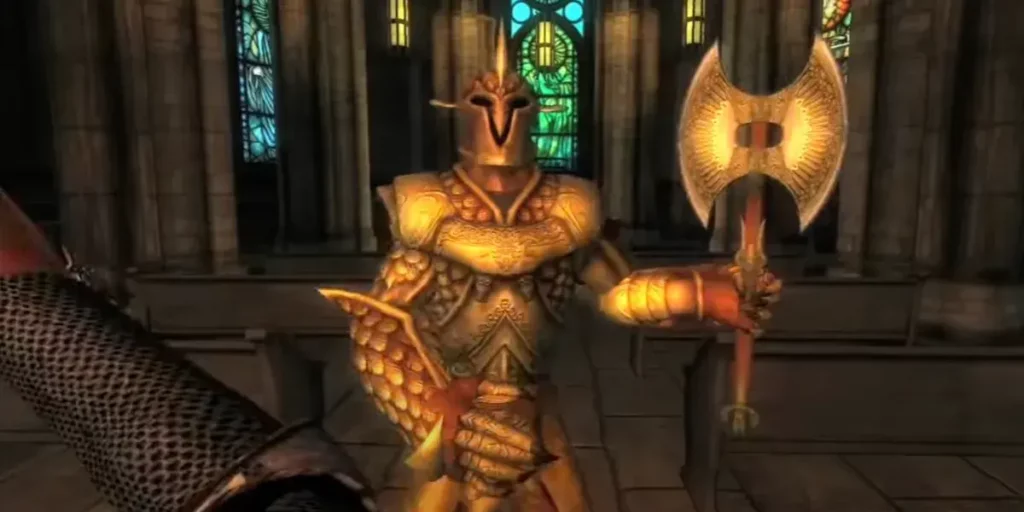
Infiltrating the Mythic Dawn
When tasked with penetrating the Mythic Dawn cult, the player must assume the role of a dedicated recruit, relinquishing all possessions and wearing cult attire. For a skilled thief, however, recovering confiscated equipment becomes a secondary objective. The cult leader vanishes before confrontation, but their sacred text remains. To access it, a sacrificial murder must be performed—something the former assassin-turned-hero knows all too well.
The host falls paralysed from a special touch, collapses down the stairs, and is promptly looted. Chaos erupts as demonic armour-clad cultists descend. Amidst the melee, the player seizes the relic and escapes—a scene worthy of any treasure-hunting adventurer.
The Main Quest’s Compelling Urgency
Oblivion’s central storyline, though entirely optional, maintains relentless momentum once begun. The player becomes embroiled in urgent assignments—defending key figures, retrieving sacred artifacts, and exposing hidden cults. Events accelerate toward a crescendo of battle, ritual, and espionage. With fiery portals emerging across the land and monsters pouring through, the stakes feel genuine and immediate.
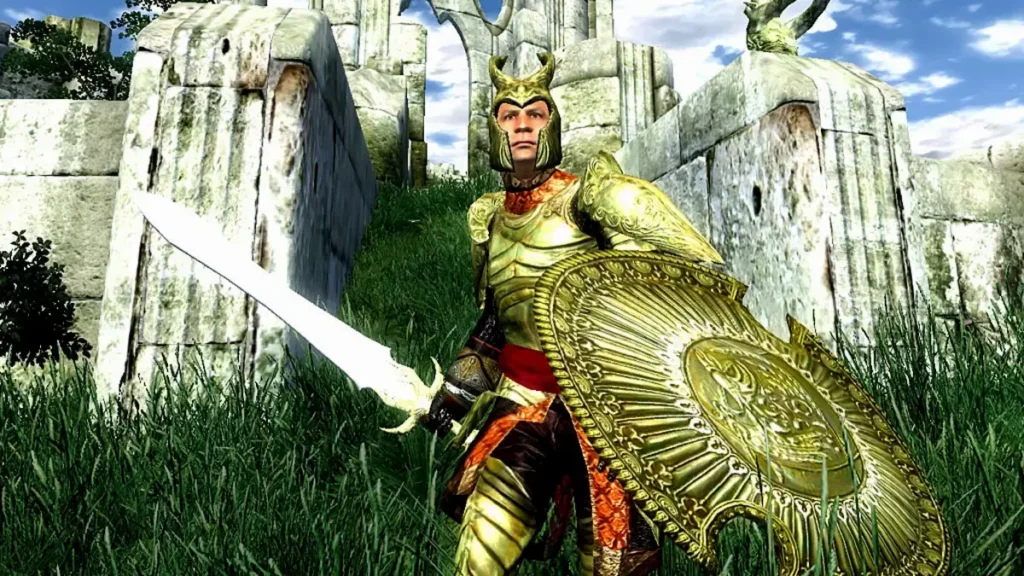
Journeys into the Realm of Oblivion
The game’s otherworldly dimension, kept secret before release, proves to be a familiar hellscape—lava, crumbling towers, and distorted flora. Though not revolutionary in design, the pressure of each excursion adds urgency. Often accompanied by Imperial soldiers, the player battles to reach and remove a Sigil Stone, collapsing the portal. The experience is intense, with the reward—enhancing a weapon with powerful effects—well worth the danger.
The Dark Brotherhood’s Deadly Artistry
The Dark Brotherhood missions exemplify masterful combinations of stealth and storytelling. One memorable assignment involves an isolated gathering where the player must eliminate each guest without alerting others. Each victim is manipulated through charm or deception, then dispatched silently. Tension escalates with every disappearance until only one remains, too intoxicated to suspect the truth.
These contracts function as twisted puzzles. One might require staging a fatal accident; another, delivering a gruesome message. Each successful elimination unlocks new equipment and deepens immersion. Eventually, the moral burden of certain assignments becomes excessive even for hardened assassins.
Thievery Under Moonlight
The Thieves Guild missions deliver equally thrilling adventures. A missing ring leads to an intricate investigation involving a wrongfully accused Argonian and a noblewoman with light fingers. Retrieving the ring means breaking into the Countess’s quarters and extracting it from her jewellery box under cover of darkness.
Caught in the act, the player dashes from the castle with arrows in pursuit. A stolen horse and enchanted boots capable of water-walking allow for a narrow escape. Guards can only watch in disbelief as the thief disappears across the lake, beyond reach.
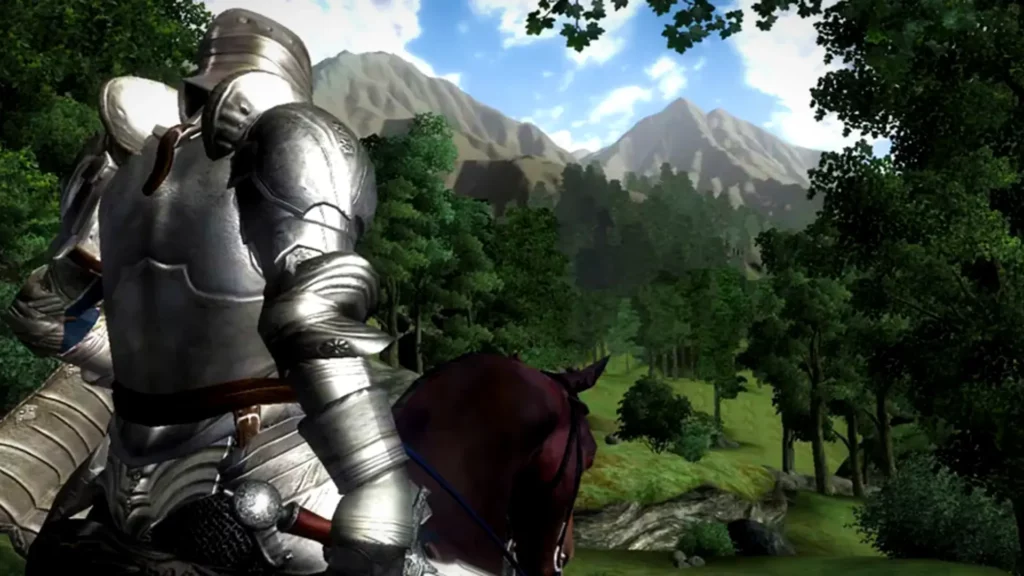
A Living World With Limitations
Cyrodiil’s inhabitants follow daily routines—working, eating, socialising—adding realism to the world. These behaviours rarely influence quests but enrich the setting. However, interactions between characters appear awkward and repetitive, revealing the limitations of the game’s social AI. Characters repeat stilted dialogue with minimal awareness of context, undermining the immersive effort.
Despite strong voice acting in scripted scenes, the randomised conversations feel mechanical and overused. This represents the one significant flaw preventing Oblivion from achieving RPG perfection, making inhabitants seem more like placeholders than people.
An Imperfect Masterpiece
Oblivion is ambitious, expansive, and occasionally unrefined. Yet its shortcomings are vastly outweighed by its strengths. From breathtaking landscapes and engaging combat to layered quests and emergent storytelling, it delivers one of gaming’s most comprehensive experiences. Every adventure is unique, defined not by a linear plot but by personal decisions.
Some might claim there isn’t time for such an enormous game. But Oblivion players understand: once it captures you, little else matters. Time fades, responsibilities diminish, and only the wonders of Cyrodiil remain.
